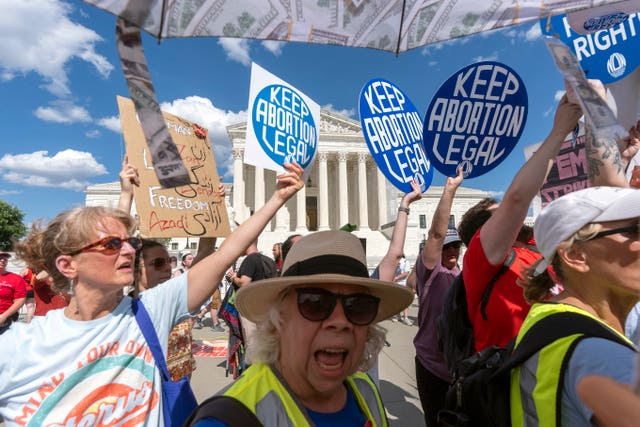Iowa’s supreme court tells lower court to let strict abortion law take effect
Iowa joins more than a dozen other states with restrictive abortion laws following the US supreme court’s overturning of Roe v Wade in 2022.

The supreme court in Iowa has said the state’s strict abortion law is legal, telling a lower court to dissolve a temporary block on the law and allowing Iowa to ban most abortions after about six weeks of pregnancy — before many women know they are pregnant.
The 4-3 ruling is a win for Republican politicians, and Iowa joins more than a dozen other states with restrictive abortion laws following the US supreme court’s overturning of Roe v Wade in 2022.
Some 14 states have near-total bans at all stages of pregnancy and three ban abortions at about six weeks.
The Iowa supreme court’s majority reiterated on Friday that there was no constitutional right to abortion.
Moreover, as the state requested, they instructed courts to assess whether the government had a legitimate interest in restricting the procedure, rather than whether there was too heavy a burden for people seeking abortion access.
Republican governor Kim Reynolds immediately released a statement celebrating the decision.
“I’m glad that the Iowa supreme court has upheld the will of the people of Iowa,” she said.
Chief justice Susan Christensen emphatically delivered a dissent, writing: “Today, our court’s majority strips Iowa women of their bodily autonomy by holding that there is no fundamental right to terminate a pregnancy under our state constitution. I cannot stand by this decision.”
There are limited circumstances under the Iowa law that would allow for abortion after six weeks of pregnancy: rape, if reported to law enforcement or a health provider within 45 days; incest, if reported within 145 days; if the fetus has a fetal abnormality “incompatible with life”; or if the pregnancy is endangering the life of the patient.
The state’s medical board recently defined rules for how doctors should adhere to the law.

The ruling previews the ending of a years-long legal battle over abortion restrictions in Iowa that escalated in 2022 when the Iowa supreme court and then the US supreme court both overturned decisions establishing a constitutional right to abortion.
The Iowa law passed with exclusively Republican support in a one-day special session last July.
A legal challenge was filed the next day by the American Civil Liberties Union of Iowa, Planned Parenthood North Central States and the Emma Goldman Clinic.
The law was in effect for a few days before a district court judge put it on pause, a decision that Ms Reynolds appealed.

At the time, Planned Parenthood North Central States said it stayed open late and made hundreds of phone calls to prepare patients amid the uncertainty, rescheduling abortion appointments in other states for those who wanted them.
Court filings showed Iowa clinics had several hundred abortion appointments scheduled over two weeks last July, with most past the six-week mark in their pregnancies.
Since then, Planned Parenthood has ceased abortion services in two Iowa cities, including one in Des Moines.
The other Des Moines location does not currently have the capacity to serve patients seeking an abortion, so abortion medication and the procedure are being offered about 36 miles north in Ames.





